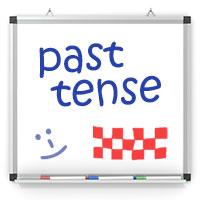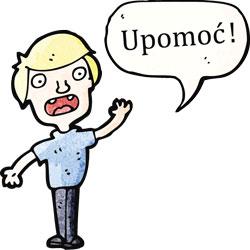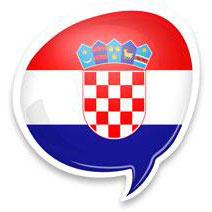Just as with nouns, adjectives change their forms according to the three grammatical categories gender (masculine, feminine, neuter), number (singular or plural) and case (nominative, genitive, dative, accusative, vocative, locative, instrumental).
1. Gender
Adjectives can be either masculine (lijep - beautiful), feminine (lijepa) or neuter (lijepo) – in accordance with the noun gender.
The masculine singular form is the basic form of the adjective and it ends with a consonant. All other forms – both singular and plural – are created by adding certain endings to this basic form.
To form feminine adjectives, an ending -a is added and an -o is added to make neuter adjectives.
You might come across masculine adjectives ending in -i (lijepi) in the nominative singular. The difference between the two (lijep vs. lijepi) is that the first one is indefinite, while the second one is definite. This would be equivalent to the English articles (a vs. the):
lijep prozor → a beautiful window
lijepi prozor → the beautiful window
However, since Croatian has no articles, this difference is of no greater importance, especially not to those who learn Croatian as the second language!
Even though most masculine adjectives (like masculine nouns) end in a consonant, there is also a relatively small group of masculine endings that end in two vowels: either -ao or -eo. With these adjectives, an “-l” needs to be inserted before the usual endings:
debeo (fat) → debela → debelo
topao (warm) → topla → toplo
okrugao (round) → okrugla → okruglo
2. Number
Adjectives have a singular and a plural form. Both forms also have genders. Plural endings of the adjectives in nominative are exactly the same as the noun endings (unless the noun is irregular):
| | Singular | Plural |
|---|
| Masculine |
lijep prozor
(beautiful window)
|
lijepi prozori
(beautiful windows)
|
| Feminine |
lijepa slika
(beautiful picture)
|
lijepe slike
(beautiful pictures)
|
| Neuter |
lijepo more
(beautiful sea)
|
lijepa mora
(beautiful seas)
|
| |
|
|
3. Case
There are seven cases in Croatian. Unfortunately, the adjective ending doesn’t also match the noun ending, so these endings need to be learnt by heart.
| Singular |
|---|
| | Masculine | Feminine | Neuter |
|---|
| Nominativ |
lijep prozor |
lijepa slika |
lijepo more |
| Genitive |
lijepog prozora |
lijepe slike |
lijepog mora |
| Dative |
lijepom prozoru |
lijepoj slici |
lijepom moru |
| Accusative |
lijep prozor /lijepog čovjeka* |
lijepu sliku |
lijepo more |
| Vocative |
lijepi prozoru |
lijepa sliko |
lijepo more |
| Locative |
lijepom prozoru |
lijepoj slici |
lijepom moru |
| Instrumental |
lijepim prozorom |
lijepom slikom |
lijepim morem |
| |
|
|
|
*This change only applies to masculine nouns and adjectives which denote living beings (i.e. people and animals). These nouns receive the ending -a and adjectives receive the ending -og in the accusative case.
| Plural |
|---|
| | Masculine | Feminine | Neuter |
|---|
| Nominativ |
lijepi prozori |
lijepe slike |
lijepa mora |
| Genitive |
lijepih prozora |
lijepih slika |
lijepih mora |
| Dative |
lijepim prozorima |
lijepim slikama |
lijepim morima |
| Accusative |
lijepe prozore |
lijepe slike |
lijepa mora |
| Vocative |
lijepi prozori |
lijepe slike |
lijepa mora |
| Locative |
lijepim prozorima |
lijepim slikama |
lijepim morima |
| Instrumental |
lijepim prozorom |
lijepim slikama |
lijepim morima |
| |
|
|
|
In plural all three genders have the same adjective ending, -im, in three cases: dative, locative and instrumental!
Exercise: How would you say the following?
This is a pretty little house.
Answer
Ovo je lijepa malena kuća.
The blue house is next to the red fence.
Answer
Plava kuća je kraj crvene ograde.
We have a good dog.
Answer
Imamo dobrog psa.
We’re talking about good friends.
Answer
Govorimo o dobrim prijateljima.
He likes intelligent women.
Answer
On voli inteligentne žene.
I went to the cinema with a new boyfriend.
Answer
Išla sam u kino s novim dečkom.
We want a modern apartment.
Answer
Želimo moderan stan.
Are you going to the new café?
Answer
Ideš li u novi kafić?
I come from sunny Croatia.
Answer
Ja sam iz sunčane Hrvatske.






